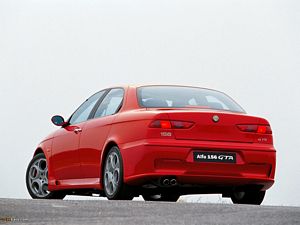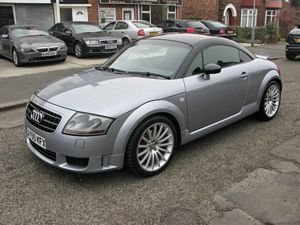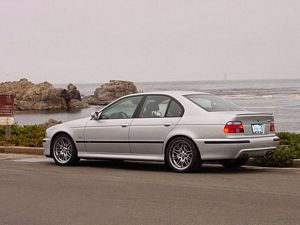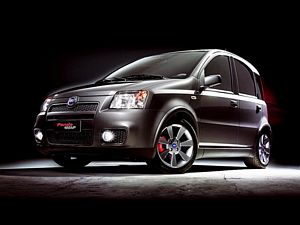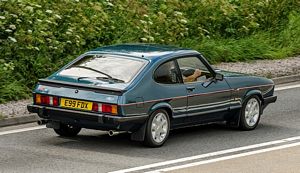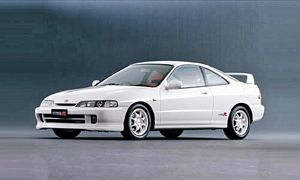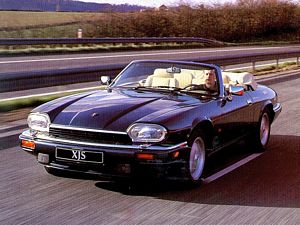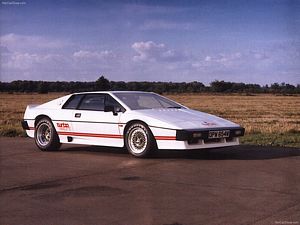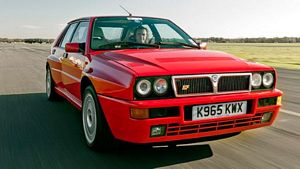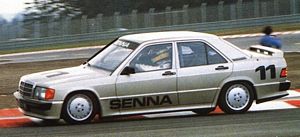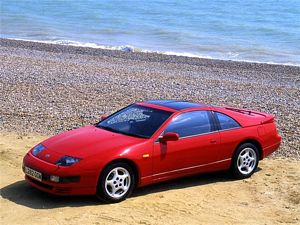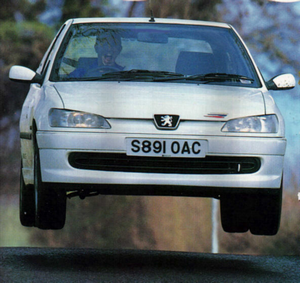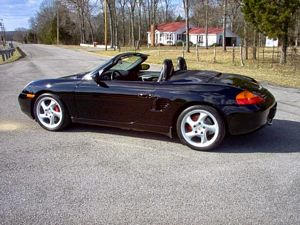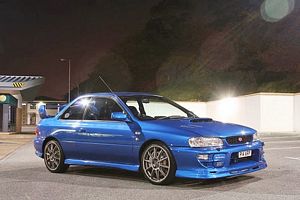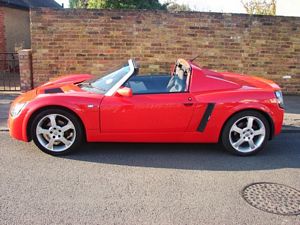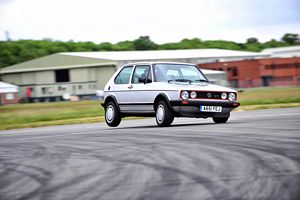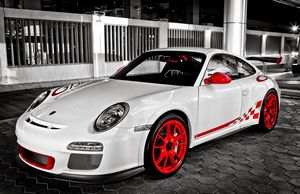|
By accessing or using The Crittenden Automotive Library™/CarsAndRacingStuff.com, you signify your agreement with the Terms of Use on our Legal Information page. Our Privacy Policy is also available there. |

Hubbard's Million's - An imagined shopping list of cars
|
|---|
|
|
Hubbard's Million's - An imagined shopping list of cars
Colin Hubbard
Speedmonkey
August 9, 2013
Speedmonkey writer Colin Hubbard has come up with a game for insomniac petrolheads to play in the wee small hours
Sometimes at night I just can’t sleep and as I don’t fancy sheep I don’t count them so think about cars instead until the ZZZZZZZs occur. Sometimes it’s a little boring which may well be the point but I have thought up a game which helps.
I call it Hubbard’s Millions and is based on a theme from the classic film Brewster’s Millions where they have to spend money to get more money. You have a long lost uncle who has passed and left you some money conditionally based upon his set criteria of selecting 20 iconic game changing cars which you would love to own, each by different manufacturers. And you have to be able to sell the concept of that car to the executor of the will, using exactly £100,000 so each car is circa £5,000 - and by saving on a few means you can spend more on others.
Yes I know that there’s not a million £’s involved but you get the gist and that sum would be for another night.
If the criteria are met and you manage this before you go to sleep then your prize is a £100,000 fund to buy a supercar in addition to keeping the 20 iconic cars and in one of his heated garages closeby.
Heres my list;
Alfa Romeo 156 GTA
Some say if you’ve never owned an Alfa you’re not a true petrolhead. Well I haven’t but I am so the list embarks with a more modern one that hopefully won’t swoon at the first sign of NaCl or die when the window switch is pressed. For £6k you can get a tidy example of this front wheel drive, 3.2 litre 250 bhp beast with a mechanical LSD to keep the front wheels in shape. It has drop-dead good looks with a tidy bodykit, smooth rear door handles and telephone-dial wheels a Lamborghini would be proud of. It even looks good under the bonnet with chromed inlets whilst the interior is equipped with ribbed leather bucket seats that look soooo cool. I really like this in black but it’s Italian so it has to have the red option ticked. It’s here because of its good looks, a throbbing engine, Italian flair and well, it’s an Alfa.
Audi TT Sport 240
I rate this car so much I very nearly bought one but the 3.2 with it’s rear seats pipped it to the post. The TT was a game changer for car design, Audi had the balls to firstly create a gorgeous curvy concept car and then even bigger plums to sign it off and put it into production with a slight tweak to the mirrors. My TT still gets stares whenever I go some 15 years after it was launched and the sport 240 is even better looking. The Sport 240 was a stripped out uprated version of the 1.8t 225 quattro and gained extra power to 240bhp, fixed 1 piece bucket seats, had the rear seats removed and battery moved to the boot and gained a rear strut brace. Visually it benefitted from a black roof, V6 front and rear spoilers and some wider 18 inch multispoke alloys. With its extra power and reduced weight it could hit sixty in 5.8 seconds and the quattro system meant it corners like a train(on rails). These can be picked up from £5.5k with a few miles on and I would go for grey to show off the back roof. Nominated for its concept car looks with scorching performance.
BMW M5 E39
This was described shortly after launch as the best car in the world. The M5 was based on a the very practical 4 door E39 saloon and shoehorned a stonking 400 horsepower 5.0 litre V8 under the bonnet with drive to the rear wheels dissected by a limited slip diff. BMW kindly fitted it with a Getrag 6 speed manual box permitting a 4.8 second 0-60 dash at a time when its competition were installing slushy autoboxes. This was also the last manual M5 making it a sure-fire future classic. A spacious 5 seat interior allowed a driver to take 4 passengers in either cosseting comfort or agonising accelerative G force depending which side of the bed he/she woke up on. This car has to be shown in metallic silver to show off its well proportioned and understated good looks and can be found from £6,000. On the list as it’s the performance bargain of the century.
Fiat Panda 100hp
Bear with me on this you’re probably thinking I’ve lost the plot this early on. I hired a mark 3 Panda on honeymoon in 2005 and found it incredibly well packaged. A fun little buzzy car and a lively performer from its 1.2 60bhp engine. The 100hp version was created by the Fiat group using their access to Ferrari engineers, the 1.4 engine from a Punto and it was the only Panda at the time with all round disc brakes. The Ferrari engineers spend considerable amounts of time trying multiple configurations of suspension and braking components from the Fiat parts bin (not branded performance names like Brembo and Bilstein) to create a Panda shaped ball of fun. Think of it like blueprinting (http://en.wikipedia.org/wiki/Engine_tuning#Blueprinting), using the best combination of selected parts for an overall balanced package. The result was a classy little performer which provided big smiles at low speeds, the ride was harsh and bouncy and some described it as like a pogo stick but an incredibly comical performer that was best utilised by grabbing it by the scruff of the neck and man-handling it to your destination. Its looks were slightly odd being so upright but a definite grower and I wouldn’t use the words ugly or bland in its presence, maybe purposeful. It may take 9.5 seconds to hit the national speed limit but available from £4.5k and in grey is the slowest way to have a hoot!
Ford Capri 280 Brooklands.
I don’t have any time for modern Fords and whilst there’s a host of back catalogues to pick from with classics in the forms of Escorts Mark 2 RS2000 and Mark 3 Series 1 RS Turbo it’s the Capri that’s got my heart. The Capri has such an atmosphere with it and I can picture it now sideways mid corner, then through a barrage of empty cardboard boxes piloted by Terry McCann, George Carter, George Cowley or Raymond Doyle firing an old pistol and shouting ‘you slaaagg’. The pinnacle of the Capri range was for me the Brooklands 280, based upon the standard 2.8 with 160bhp and a 130 mph top speed but equipped with gorgeous 15 inch ‘RS’ alloys and a limited slip diff. Style wise it was painted in ‘Brooklands’ Green with a black leather interior with red piping. The Capri didn’t handle well at all with leaf springs at the rear but it had the ability to drift really well helped by its LSD, long snout and light back end which in the rights hands and in front of a camera started many a schoolboy fantasy. So it isn’t really fast but it had a great 80s TV career and will guarantee to put a smile on your face, and be the talking point of any car park. The cheapest I have seen on the classifieds is £6k. A heavily appreciating classic, and better than cash in the bank.
Honda Integra Type-R DC2
The Type-R redefined the front wheel drive experience with a wonderfully contrived set up and revvy 1.8 litre VTEC unit. Honda squeezed 187bhp out of this little unit through VTEC (Variable Valve Timing and Lift Electronic Control (shouldn’t that be VVTLEC)) technology and it was screamer, being happier towards higher revs and the 8,400rpm redline. The car is factory fitted with a front LSD which, in conjunction with that engine, and very balanced and accurate steering takes feel and performance to new front wheel drive levels. Sixty is dispelled in 6.2 seconds partly due to appropriate gearing and the removal of all the sound insulation but I would say mainly due to the LSD pulling the car off the line supplying each front tyre with exactly the right amount of power. The weight removal did come at a price which was refinement and audibly high road noise but this made it feel like a race car on the road, which is not a bad thing if you have a daily driver to rely on and keep this in the garage for when you want to play. The trademark colour for these was championship white with matching white wheels which is also my colour of choice. In an Evo front wheel drive multi-car test this was pronounced as the best front wheel drive car ever and praise doesn’t come much higher. £4k will get one without Millennium Falcon mileage but likely a worn through patch on the driver’s side red Recaro.
Jaguar XJS 3.6 convertible
This is my classic Gentlemans carriage if ever there was a category. It’s the successor to the E-type and whilst not as beautiful it’s well built, classy and available substantially cheaper. It went through 21 years of production with few changes which is unheard in this day and age due to selling in steady numbers which the typical buyer kept coming back for more. On a nice sunny day it’s a cheap form of wind in the hair motoring for you and your partner to cruise to the south of France in style. The 5.3 litre V12 is too thirsty but the 3.6 made do with half the cylinders and 220ish bhp which was considered brisk in the eighties. The 6 cylinder models featured a power bulge in the centre of the bonnet not found on the V12s. You’ll need to find £7k for a nice one in British Racing Green with cream upholstery and matching green piping. This offers a supersmooth grand touring experience with 70s heritage having featured in the New Avengers driven by Gareth Hunt.
Land Rover Defender
Every car collection must feature a Land Rover designed only with a ruler and in the form of Series 1/2/3, 90/110 and in later life a Defender. There must be 50 different configurations based on long/short wheelbase, 2/3/4/5 doors, hard/soft/no top and various sized petrol and diesel engines so it wasn’t as easy as saying I’ll have one of them. This makes speccing a modern Mercedes look easy! These were and still are the go anywhere vehicle and still king of off-road today. Reckon on spending around £3,000 for an old diesel short wheelbase 7 seater.
Lotus Esprit
James Bond worked wonders for sales of the Esprit, in particular the Series 1 that turned into a submarine in the 1977 film ‘The Spy Who Loved Me’ - and for me the very best Bond car to date. With its shovel style front end, mid mounted engine and Wolfrace wheels it’s as classic as a Lamborghini Countach for used Mondeo money. With a mere in-line 4 cylinder engine creating a ‘claimed’ 160 bhp it didn’t tear the roads up but with a sub 1000kg kerb weight hustled along nicely and with a height of just 112cm it handles like a go kart. Whilst its not quite as low as a Countach it still has the jaw dropping swoon factor of the Italian Stallion, ever more so today in a world of bouncy ball fronted, kiddy friendly eco boxes. This needs no justification to be on the list and it will take a £9,000 chunk out of the budget to find a tidy model in the best colour – white, because the James Bond connection adds at least 20 physiological horsepower.
Lancia Delta Integrale
Two words – Box and Arches, they bring adrenalin and purpose to an otherwise fairly dull square hatchback. The Integrale had more than those trademark arches though, it was produced for rallying being based upon the HF 4WD but given a big heart - in this model a 2 litre turbo pushing out 185 bhp and 224 torques. This may be warm hatchback territory in the current century but with a low kerb weight for an all wheel drive car of 1300 kilos it mean rapid performance for the era. Coupled with a sophisticated (at the time) four wheel drive system and a centre diff meant grip and handling was superb for a road car. To complement the box arches the bonnet received similar treatment with a huge power bulge, and the headlights were fitted with twin, round lamps. It looks fast parked up and when off was a treat to drive with that centre diff helping steer the car. The inside doesn’t share the same aggression with a dashboard not out of place in Toys R Us both in terms of design and quality and squidgy sports seats that by now will be past their best. Ignoring the internal flaws the Integrale was a rally champion with 46 WRC wins in the years between 1987 and 1992 and this ethos wore through to the road cars. Integrales can be found for as little as £4,000 for a left hand drive version but it's worth spending a little more for a documented model in good condition so reckon on spending £6,000 for a LHD slice of history.
Mazda Bongo Friendee with Auto Freetop
Now I know you think I’ve lost the plot with this one when Mazda also make the wonderful, sweet-handling MX5 roadster but bear with me on this one. If you were given a chance to create a car collection then you need a toy as a little fun, a little practicality and this van-derived car does that in the form of a weekend party bus. It has 8 seats as standard (2 front, 3 middle, 3 rear) and they can be folded flat to create a double bed in the back and a pop-up roof with tent, which means there's space for another 2 on, effectively, the roof. The party trick is the electric blinds in the rear section so at the touch of a button you can gain privacy in a layby, supermarket carpark or field. It’s the perfect tent on wheels and with four wheel drive won’t be getting stuck in the mud at Glastonbury. Instead it’ll powerslide out of the mud using it’s torquey but not so powerful 2.5 turbo diesel mid-mounted lump with auto transmission. I’d go for black and a 1996 model can be picked up for £3,500.
Mercedes 190E 2.5-16
Now onto one of my favourite cars of all time. I recall the day my Dad bought a 190E brand new in 1989 recalling the Germanic smell and heft from granite build quality at a time when the neighbours had Rover 8 series made from fake wood, fragile (that’s generous) electrics and cheap cuts of metal. This Merc was created at the very height of the Mercedes over engineered bulletproof build quality era and the halo model was the 2.5-16 which many people did, and still do, call the Cosworth. I have to clear this up that this car has no connection with Cosworth, only the previous model 2.3-16 had that relationship as Mr Coswin and Mr Duckworth created the 16 valve cylinder head from scratch to use on Merc’s uprated 4 pot short engine. For the 2.5 Mercedes increased capacity and made their own head which made it a more refined car, the former car a screamer and the latter a creamer. With discrete 15 inch alloys, integrated bodykit, minor arch extensions and rear spoiler its looks were understated aggression, more David Haigh than David Beckham. The interior was an 80s style masterpiece. It came as standard with half leather/half chequered cloth seats and in the back two individually sculptured seats reducing it’s practicality slightly. Only the oversized steering wheel and wood trim let the interior down. Performance was adequate for an 80s semi Q car with 197 bhp. It could supposedly hit sixty in 7.5 seconds helped by a hydraulically locking rear diff and onto a reported 146mph top speed. The 190E took place in many German Touring Car rounds in the Evolution form with huge wings and in 1984 highlighted the skills of a rather unknown young driver call Aryton Senna who took first place in a race around the Nurburging with former and current F1 drivers. The car features a dog leg gearbox which is where first gear is across and down rather than across and up (reverse is where you’d expect first gear) so check for rear accident damage where unfamiliar drivers have shot into the car behind. The name is derived from a dog’s hind leg , with it’s sharp angle hence the transition from gear 1 to 2 being in this pattern. I would opt for an Amandine red model which is slightly pinky and in 1989 vintage which costs from £6,000 and an appreciating classic.
Mitsubishi Lancer Evolution VI Makinen
The standout feature on this car is the acceleration figure of 0-60 in 4.6 seconds. I’ll write that again, 4.6 seconds - for this block fronted 3 box saloon to hit the national speed limit. Wow. This is party down to the 2 litre, blown, in-line 4 developing a Japanese pact conforming 276bhp, partly down to clever four wheel drive technology and aided by relatively low kerb weight (theres not much sound deadening or toys in here). The acceleration isn’t just the car's strong point, no its party piece is a very special drivetrain and chassis with diffs here, there and everywhere sending power to exactly what wheel demands it. The ‘Active Yaw Control’ is computer controlled diffs with two clutches to control the power distribution front/rear and left/right which earned it top spot in many rallies and brought big success to Tommi Makinen hence the name of this Edition. Based on the Evo VI it featured white Enkei alloys, Recaro seats with ‘T. Makinen Edition’ stitched into them and a front bumper with larger air intakes in lieu of the huge round spotlights. The colour to have is red with the stickers and stripes but on a budget you can pick up a 2000 model in blue, black, white or silver for £6,000 compared with the £9,000 for the red one.
Nissan 300ZX T-Bar Twin Turbo
This 300 version of Nissan’s Z car was also given an X in the name to signify Luxury and was more a grand tourer than out and out rice rocket. It was powered by a 3 litre V6 twin turbo and rear wheel drive via an automatic only gearbox. When it was created Japan was at the period when CAD was being used more and more and this is one of the first cars to be entirely created using CAD. This helped to develop the active rear wheel steering system which featured only on the twin turbo model and turned the rear wheels the same direction as the fronts up to 10 degrees using hydraulic assistance from the power steering pump. This system laid the foundation for the mighty Nissan GTR. The ZX was a 2 plus 2 so the kids could also enjoy the smooth ride, ballsy engine and wind in the hair from the removal Targa roof sections in the cramped rear quarters. This car really was the king of cheese in the late nineties and still today, I can just picture hairy chested late 40 year old something’s driving along with only 3 shirt buttons done up and moustache ebbing in the wind just below the mirrored ray bans. These look great in red or silver and can be had from £1800 but best spend £3,000 for a nice 1992 one.
Peugeot 306 Rallye
For most people the obvious game changer for Peugeot was the 205 GTI 1.6, a little pocket rocket that stands a 50% chance of ending up in a hedge or ditch. Perhaps they should have called it the badger?! Not for me, been there and done that in a 1.9 GTI and found it to be a very old, very slow, small, creaky pretty looking thing. For me Peugeot's hidden gem is the 306 Rallye which is basically a Phase 2 306 GTI-6 complete with it’s 2 litre 16 valve 167 bhp motor and a gutsy 6 speed manual box. The beauty of the Rallye is that it shed some 65 kgs by removing the air con, electric windows, front fog lights (who needs them in Britian unless you are a moron) and replaces the leather seat facings which in turn increases the acceleration, efficiency and cornering balance whilst also reducing the price. And the best bit is it’s called a Rallye so you can convince your non motoring friends it’s based on a Rallye car even though it has no connection. Here because it’s a back road hero. You can pick up a nice one for £1,500 and I’d go for a 1991 model in a sleeper colour of cherry red and go upsetting Porsches down the twisties.
Porsche Boxster S
The Boxster was Porsche’s first mid engined car and considering they can make a rear engine car handle properly the Boxster should have been a success. And it was, being the bestselling Porsche for 10 years since its launch in 1996. Porsche didn’t and still don’t today make a Boxster too good so that it will steal too many sales from the 911. The power wasn’t too hot and the mark 1 didn’t even get an LSD, leaving the number chasing for its older sibling. The name Boxster was derived from the words Boxer from the engine design and Roadster for the body style. The recipe looked good, medium weight, relatively powerful mid engined 3.2 litre boxer 6 combined with a sweet 6 speed manual gearbox to deliver sixty in under 6 seconds. It was designed as a convertible from the outset so the looks and packaging were right for a 2 seater sports car with 50/50 weight distribution and the boxer engine providing a low centre of gravity for secure handling. Porsche know how to get the best feedback from the controls and the Boxster delivered with sensuous steering feedback, smooth but powerful brakes and a responsive, subtle chassis. Overall a great chassis and a joy to drive and own that can be run without huge bills. I would seek out a black on black colour combination with the 18 inch 911 Turbo design wheels which look just right against the Boxster body and £5,000 will secure one.
Renault Clio 182 Trophy
Often described as the ultimate hot hatch on any level and a car capable of keeping up with thoroughbred supercars on twisty roads. The recipe was simple, take one Clio 182 with ironically 182 horsepower equipped 2 litre engine and using the best brains at Renaultsport. Take the best chassis components to make a perfect hot hatch. The power was always going to be sufficient but once equipped with lighter 16 inch Speedline wheels, Sachs remote reservoir dampers and Eibach front springs it was a Lotus equalling corner nutter bastard that provided Cheshire Cat grins even on shopping trips never mind on quiet back roads. The interior was better specked than the Cup model having half leather fixed headrest Recaro Trendline seats and an individually numbered plaque on the drivers seat base. Externally it was painted in Capsicum Red (the only colour) and a V6 rear spoiler gave a little purpose in addition to the multi spoke anthracite Speedlines. I note that most hot hatches that reap praise have standard LSDs (R26, Integra Type R, Focus RS, Astra VXR (new one)) yet this little car through culmination of performance parts put together with love and precision by Renaultsport has shone even without a standard LSD. Overall a great package and tremendous fun for such a good value hatch with low running costs. You can pick up a nice one for £4,000, it’s as cheap to run as any other Clio 182, with the exception of the dampers which need a rebuild every few years. A small price to pay for such entertainment.
Subaru Impreza P1
Of the many special editions Subaru created. The Prodrive One was for me the pinnacle of Scoobyness. It was based upon a 2000 model 3 door bodyshell and a run of 1,000 cars were commissioned by Subaru UK in response to growing number of grey imports of fast Japanese cars flooding into Britain. All were painted Sonic Blue and finished with OZ anthracite 18 inch alloys along with the fitment of Subaru’s biggest expression of hooliganness, a massive rear spoiler and front bumper extension. Power was increased over the WRX STI base car to 276 bhp from the flat 4 (AKA boxer) and hit sixty in 4.7 seconds before going onto 156mph. It retains 4 wheel drive but loses the Driver Controlled centre Diff in favour of ABS whilst the suspension was optimised for British roads so the ride was not too harsh but handled like a rallycar. Oddly enough it was only equipped with 205 section tyres but that’s sufficient when the grip from each corner is distributed to who wants what from clever diffs and Prodrive developed chassis. The standard braking isn’t quite up to the job but the optional AP 4 pot set up solves all those worries so look out for an example thus equipped. The interior was the usual Japanese drivel but highlighted a little with standard fit Prodrive cloth sports seats and Momo airbag equiped steering wheel. You can forgive Subaru the crappy interior as most of the time you’ll be looking out of the windscreen or even side window with eyes wide open depending on the road surface. P1s can be picked up from £6,000 and if looked after will be an appreciating asset, just make sure to get one with the AP 4 pots.
Vauxhall VX220
The best thing about the VX220 is that it’s not really a Vauxhall. Well it is a bit in that the engine's from a Vectra but that’s a good point because Vauxhall know how to make great engines. Remember the old red top Astra 16v anyone? This is really a Lotus Elise with some swanky new clothes and an engine which won’t spit out the headgaskets in a hissy fit unlike it’s older brother with the Lotus badge. It's constructed with an aluminium tub covered with glassfibre bodywork so is effectively a pared to the bone racer for the road, with a healthy 145bhp and weight similar to a loaf of bread it’s great around the corners and the perky engines keeps up with much more exotic vehicles. Getting in is a bit tricky and better described as feeding yourself in but once in it’s a purposeful place to be, no carpets or seat padding just a bare aluminium tub, a steering wheel and some instruments pretty much. Take the roof off and it’s like your own go kart for the road and with similar running costs due to low weight and low power so it can turn in up to 45mpg on a run. Reliability isn’t an issue either as that mass produced Vauxhall 2.2 litre engine will do 150,000 miles without issue. These can be picked up from £6,000 for a high miler which isn’t an issue and my colour of choice would be red.
Volkswagen Golf GTI Mk1
I have saved the biggest game changer until last and it needs no introduction, being the car that invented the hot hatchback - probably Britain’s favourite and most admired category of cars. VW engineers found a niche in the market in 1976 whereby they took a standard 3 door hatchback and decided to make it ‘sporty’ like a performance car by increasing the engine power using fuel injection, making the suspension firmer and adding some slightly more bolstered seats. The GTI name was derived from Grand Touring Injection but Grand Touring was stretched a little as it is defined as an automobile capable of high speed, long distance driving commonly in a 2 door coupe format with 2 seats or a 2 plus 2. Yes it’s a 2 door and slightly faster than the standard model but it had 5 seats and wasn’t a coupe but I’m glad VW used this acronym as a Golf SHIT (Sport Hatchback Injection Tourer) doesn’t have the same ring to it... It helped that the Mark 1 Golf was a solid and lightweight base car and didn’t need powerful engines to make it go fast. I recall a neighbour once managed to roll his Mum's 1.3 Golf on a straight road going substantially faster than the law permitted. So the scarcely unbelievable 810kg Golf gained more power from it’s 1.6 litre engine up to 110bhp, a raspy exhaust note and a little chassis attitude and this combination made sports car performance available for the masses. The performance of the GTI was spirited in its day with a 0-60 dash of 8.7 seconds and the top speed of 122mph meant it was tremendous fun and was renowned for cocking up an inside rear wheel during hard cornering. The package was spot on, not too much but just enough so its price wasn’t such a premium over the base model. It even came as standard with steel wheels, albeit with fatter tyres. The car was so right at conception, under the GTI badge it’s still the benchmark today some 36 years later. I would stump for an original but tatty 5 speed car in white with steel wheels. These can be found from £2,000 but will need some work at this price.
So that’s it, £100,000 accounted for with 20 iconic cars and now for the prize.
My supercar of choice is the Porsche 911 (997) GT3 RS in white and with anthracite wheels.
Yes there are faster cars, lighter cars, better looking cars but this has them all licked for analogue feel and natural engine tone which are dying arts in the 21st Century. This is the automotive tennis racket to the Nintendo controller of the modern supercars where the cars wear the trousers and not the drivers. Cars like this need to be celebrated as the manual gearbox, hydraulic power steering and high revving naturally aspirated engines will soon be destined to the history books. The 997 GT3 RS is the pinnacle of the 911 range, created from perfected homogenous motorsport inspired components to deliver a pure raw undiluted experience.
I think it’s fair to say the car has the ability to provide plenty more than adequate performance hitting sixty from zero in 3.9 seconds and topping out at 193mph. The best bit of the engine is not the raw initial acceleration, helped by the powerplant sitting behind the rear axle, but the in-gear, in-corner acceleration it possesses. The figure of 50 to 70 in 2 seconds says it all, all with a yowling howling Metzger (German for Butcher funnily enough) 3.8 litre flat 6.
There’s Shergar rivalling heritage here and many decades of Porsche engineering man hours perfecting the rear engine 911 so the ride's hard but not rigid like an S-line Audi so it perfectly controls its own weight without removing your fillings in the process. If you can live with climbing through the scaffolding and into a serious 1 piece bucket seat and then strapping on a 5 point harness then you could live with the ride and lightweight, bobbing front end. Popping to the shops may be a rigmarole and your oranges will be dispensed and squeezed all over the lovely alcantara interior but it would be worth it for the event of driving this car.
My perfect spec would be with stereo and SatNav, the fixed bucket seats and proper 5 point harness but you can keep the air conditioning, that’s not required with the speed this can move the air.
Now, I’m still awake and will have to start again………………….

















